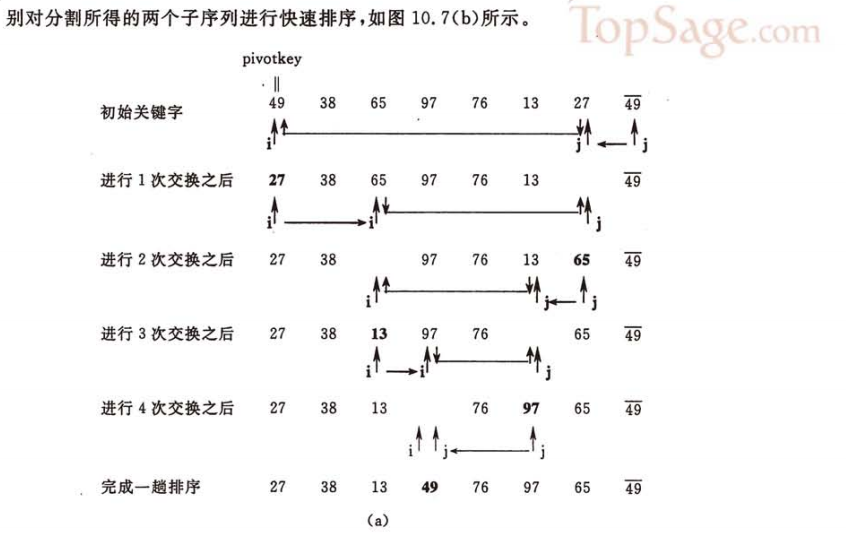每次看大牛的博客都有一种感想:啥时候我也能成为大牛。。。。。插入一个:上两篇文章分别介绍了选择排序和冒泡排序,其思想都差不多,只是选择排序是比较完所有数据后确定最小的数再交换,而冒泡排序是比较相邻的两个数如果顺序不对就要交换:两者的时间复杂度都是o(n2)
下面是我在数组里面存在相同数据的结果:选择排序和冒泡排序的结果
选择排序的结果:
第1次排序结果:1 33 12 45 23 68 33 24 100 88 98 59
第2次排序结果:1 12 33 45 23 68 33 24 100 88 98 59
第3次排序结果:1 12 23 45 33 68 33 24 100 88 98 59
第4次排序结果:1 12 23 24 33 68 33 45 100 88 98 59
第5次排序结果:1 12 23 24 33 68 33 45 100 88 98 59
第6次排序结果:1 12 23 24 33 33 68 45 100 88 98 59
第7次排序结果:1 12 23 24 33 33 45 68 100 88 98 59
第8次排序结果:1 12 23 24 33 33 45 68 100 88 98 59
第9次排序结果:1 12 23 24 33 33 45 68 88 100 98 59
第10次排序结果:1 12 23 24 33 33 45 68 88 98 100 59
第11次排序结果:1 12 23 24 33 33 45 68 88 98 100 59
第12次排序结果:1 12 23 24 33 33 45 68 88 98 100 59
最终排序结果:1 12 23 24 33 33 45 68 88 98 100 59
冒泡排序的结果:
第1次排序结果:12 23 24 33 33 45 68 88 98 100 59 1
第2次排序结果:23 24 33 33 45 68 88 98 100 59 12 1
第3次排序结果:24 33 33 45 68 88 98 100 59 23 12 1
第4次排序结果:33 33 45 68 88 98 100 59 24 23 12 1
第5次排序结果:33 45 68 88 98 100 59 33 24 23 12 1
第6次排序结果:45 68 88 98 100 59 33 33 24 23 12 1
第7次排序结果:68 88 98 100 59 45 33 33 24 23 12 1
第8次排序结果:88 98 100 68 59 45 33 33 24 23 12 1
第9次排序结果:98 100 88 68 59 45 33 33 24 23 12 1
第10次排序结果:100 98 88 68 59 45 33 33 24 23 12 1
第11次排序结果:100 98 88 68 59 45 33 33 24 23 12 1
最终排序结果:100 98 88 68 59 45 33 33 24 23 12 1快速排序的基本思想:
通过一趟排序将待排序记录分割成独立的两部分,其中一部分记录的关键字均比另一部分关键字小,则分别对这两部分继续进行排序,直到整个序列有序。

把整个序列看做一个数组,把第零个位置看做中轴,和最后一个比,如果比它小交换,比它大不做任何处理;交换了以后再和小的那端比,比它小不交换,比他大交换。这样循环往复,一趟排序完成,左边就是比中轴小的,右边就是比中轴大的,然后再用分治法,分别对这两个独立的数组进行排序。
- public int getMiddle(Integer[] list, int low, int high) {
- int tmp = list[low]; //数组的第一个作为中轴
- while (low < high) {
- while (low < high && list[high] > tmp) {
- high--;
- }
- list[low] = list[high]; //比中轴小的记录移到低端
- while (low < high && list[low] < tmp) {
- low++;
- }
- list[high] = list[low]; //比中轴大的记录移到高端
- }
- list[low] = tmp; //中轴记录到尾
- return low; //返回中轴的位置
- }
递归形式的分治排序算法:
- public void _quickSort(Integer[] list, int low, int high) {
- if (low < high) {
- int middle = getMiddle(list, low, high); //将list数组进行一分为二
- _quickSort(list, low, middle - 1); //对低字表进行递归排序
- _quickSort(list, middle + 1, high); //对高字表进行递归排序
- }
- }
- public void quick(Integer[] str) {
- if (str.length > 0) { //查看数组是否为空
- _quickSort(str, 0, str.length - 1);
- }
- }
编写测试方法:
- public class TestMain {
- /**
- * @param args
- */
- public static void main(String[] args) {
- // TODO Auto-generated method stub
- Integer[] list={34,3,53,2,23,7,14,10};
- QuicSort qs=new QuicSort();
- qs.quick(list);
- for(int i=0;i<list.length;i++){
- System.out.print(list[i]+" ");
- }
- System.out.println();
- }
- }
2 3 7 10 14 23 34 53
这样就排序好了,快速排序是对冒泡排序的一种改进,平均时间复杂度是O(nlogn)。
- public int getMiddle(Integer[] list, int low, int high) {
- int tmp = list[low]; //数组的第一个作为中轴
- while (low < high) {
- while (low < high && list[high] > tmp) {
- high--;
- }
- list[low] = list[high]; //比中轴小的记录移到低端
- while (low < high && list[low] < tmp) {
- low++;
- }
- list[high] = list[low]; //比中轴大的记录移到高端
- }
- list[low] = tmp; //中轴记录到尾
- return low; //返回中轴的位置
- }
递归形式的分治排序算法:
- public void _quickSort(Integer[] list, int low, int high) {
- if (low < high) {
- int middle = getMiddle(list, low, high); //将list数组进行一分为二
- _quickSort(list, low, middle - 1); //对低字表进行递归排序
- _quickSort(list, middle + 1, high); //对高字表进行递归排序
- }
- }
- public void quick(Integer[] str) {
- if (str.length > 0) { //查看数组是否为空
- _quickSort(str, 0, str.length - 1);
- }
- }
编写测试方法:
- public class TestMain {
- /**
- * @param args
- */
- public static void main(String[] args) {
- // TODO Auto-generated method stub
- Integer[] list={34,3,53,2,23,7,14,10};
- QuicSort qs=new QuicSort();
- qs.quick(list);
- for(int i=0;i<list.length;i++){
- System.out.print(list[i]+" ");
- }
- System.out.println();
- }
- }
2 3 7 10 14 23 34 53
这样就排序好了,快速排序是对冒泡排序的一种改进,平均时间复杂度是O(nlogn)。
最后
以上就是外向蓝天最近收集整理的关于数据结构与算法——快速排序的全部内容,更多相关数据结构与算法——快速排序内容请搜索靠谱客的其他文章。
本图文内容来源于网友提供,作为学习参考使用,或来自网络收集整理,版权属于原作者所有。





![制作根文件系统:make[1]: *** [miscutils/ubi_tools.o] 错误 1 --来源于网络](https://www.shuijiaxian.com/files_image/reation/bcimg12.png)


发表评论 取消回复